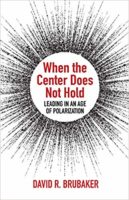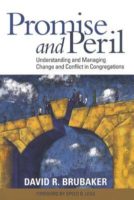I began my current career of teaching and consulting 30 years ago. In those three decades, I’ve watched several valued colleagues burn out, and also have experienced periods of stress and burnout myself. For the multitude of us who work in a “people profession” (and particularly in ministry), the seemingly endless demands of our work—along with family and community demands—can become overwhelming.
It seems that every individual who persists in such professions develops regular strategies to sustain her or his work. The three that I find most sustaining are a daily walk with our dog, weekly journaling, and a Friday night Supper Club with trusted friends. Others have reported that daily meditation, running, or yoga sustains them in ministry. What seems to be important is not the particular set of rituals that someone develop, but rather the regularity with which they are practiced.
Vacations for renewal
But in addition to these daily and weekly rituals of sustainability, I’ve learned that an annual cycle of rest and renewal is also essential. Americans call these times “a vacation” and Europeans “a holiday,” but the importance of such breaks is universal. Like other biological organisms, in order to sustain productivity we humans require periods of “fallowness.” In short, if we want to produce fruit in season we must reinvigorate ourselves out of season.
Why is an extended vacation or holiday so important? Without annual times to withdraw from our work and recharge ourselves, we tend to become cynical and ineffective. We should not be surprised that the root of the words “vacation” and “vacate” are identical. A proper vacation requires that we “vacate” our usual space and responsibilities in order to both recharge our emotional and spiritual batteries and to recover our sense of calling and purpose. Here are the three gifts I’ve received from annual vacations, which I typically take during the month of July.
- First, vacations allow us to disconnect from our regular responsibilities. For those who must prepare sermons, lectures, or blog posts on a regular basis, vacations offer a respite from the normal daily grind. For others who are addicted to their email accounts, vacations provide a socially-acceptable mechanism for delaying a response. Vacations are an invaluable opportunity to “come away and rest for a while.” When we fail to seize the opportunity—or refuse to rest when we are on vacation—we inevitably pay a price later in the year.
- Second, vacations are an opportunity to spend intensive time with loved ones. I’m currently in the second week of a two-week vacation in the mountains with my wife—and our oldest son was able to join us in the mountains for this week. We’ve combined long walks in the woods with long talks about life, careers, and God—something that seldom happens in the crush of daily life and work. We’ve noticed that meal preparation is more collaborative than usual and that we linger longer over supper. In the evenings we play games together or watch the sunset over a nearby lake. Granted, “vacations” had a different rhythm when our boys were little, but the opportunity for more relaxed time with those we love at any age is a wonderful gift.
- Third, vacations often connect us with the deep rhythms of nature—which are themselves healing and restorative. Whether it’s a week at the beach or a sojourn in the mountains, vacations often place us closer to nature than do our usual life routines. The regular cycle of the tides reminds us that we are each embedded in larger natural systems and patterns. The scale of the mountains (particularly in the American West) and the abundant wildlife that inhabit them reveal our relative insignificance in the scheme of things.
For those of us who are tempted to take ourselves or our work too seriously, an annual vacation is an essential reminder that the world (and our workplace) gets along just fine without us. Such reminders provide the necessary perspective to contribute truly valuable work when we are not on vacation.
Back to your vacation!
To those of you who are on vacation when you read this—don’t spend any more time than absolutely necessary on-line this week. And to those of you who have taken or plan to take a vacation this summer—make the most of it. But to those of you who haven’t planned a vacation this year—it will likely cost you far more to skip a vacation than to take one.
Vacations are a gift—but they are also a necessity. When you vacate your usual role and responsibilities this year, remember that such an opportunity is an essential part of “restoring your soul” so that you work even more effectively in the coming year.
David Brubaker has consulted with organizations and congregations in the U.S. and a dozen other countries on organizational development and conflict transformation. He is the author of Promise and Peril, on managing change and conflict in congregations, and When the Center Does Not Hold, on leading in an age of polarization. David serves as Dean of the School of Social Sciences and Professions at Eastern Mennonite University and is a professor of organizational studies.



